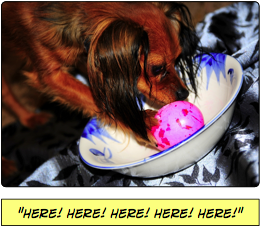1. The Sack.
2. The Magpie.
3. The Deer in Headlights.
4. The Hungry Vulture.
5. The Premature Solutioner.
6. The Terrier.
7. The Wanderer.
8. The Anticipator.
9. The Reluctant Puppet
If you’ve stick with me this long, you know for the last two weeks I’ve been working on a series involving destructive project manager behaviours that have the potential to seriously derail projects. I’m putting this together because I believe all of us as PMs need to be able to take stock of our behaviour and watch for warning signs that we might be inadvertently putting our projects in jeopardy.
Many bodies out there speak for empiricist best practices, and I don’t disagree with them. I also don’t believe best practices are a complete picture of what the project manager needs to bring to the table. First and foremost, the PM needs a certain level of introspection that can tell him or her whether or not they’re on the right track.
Another thing a PM needs (badly) is a sense of humour. It’s in that vein I’m bringing you these articles. And without further ado, I give you….
6. The Terrier.
The poor Terrier really means well. Always searching, they are full of purpose. And when they recognize a problem, they will latch on to it tooth and nail, dissecting it and re-dissecting it until you wouldn’t think there was another way you could possibly look at it. The trouble with Terriers is, they have a lot of trouble letting go. Even bigger trouble for Terriers is, while they’re fixated, they can’t see anything else that’s going on.
Once they lock on to something, you’ll likely have to pry it from their cold, dead hands before they’ll relinquish it. While ownership is an incredibly valuable asset, a project manager doesn’t have the luxury of taking ownership of one thing, at the expense of all the other things in their purview.
 Consequences:
Consequences:
The object of a Terrier’s tenacity will likely be in great shape. The rest of the project unfortunately, can easily fall into shambles. Stakeholders whose issues aren’t the focus of the Terrier’s digging will feel the PM doesn’t care about them. Routine tasks like reporting and communications can fall to neglect. Boring work falls by the wayside and team members fall to confusion.
Luckily for Terriers, their behaviour is very obvious and it won’t take long for someone who feels slighted to start making noise. From the project’s perspective, if the Terrier isn’t righted, others will usually pick up the slack because enough people are aware of the noise unhappy project members are making. That doesn’t mean others’ aggravation won’t slow the project down, however. The Terrier needs to look after all facets of their project, and that includes the morale of unhappy stakeholders and teammates.
Prevention:
Terriers need to remember that they’re responsible for much more than one aspect of a project. While their temptation to pursue one thing at a time may be overwhelming for them, they must resist their temptation to fixate.
Remember my advice for the Magpie? This is almost the opposite problem, but some of the remediating actions are the same. Terriers need to be much better organized, and improve their time management skills. I’ll repeat the resources from the Magpie’s prevention suggestions here.
| Being Organized | Time Management |
|---|---|
More than anything a Terrier can do to improve their behaviour though, is to always remember what their behaviour means. Here’s a great monologue that Terriers might do well to keep in the back of their minds. If you find yourself exhibiting Terrier behaviour, remember Brian Cox’ words from the 1996 movie, “The Long Kiss Goodnight“. If you find you’ve gotten yourself to the point of Alice’s dog, it’s time to let go.
Video courtesy of NapalmPuppyTruck on YouTube.
Related articles by Zemanta
- Time Management and Organizational Skills in Health Care (healthfieldmedicare.suite101.com)
- Proj Mgmt Capability (slideshare.net)
- Project Management: A Flight Of Beauty (womensblog.score.org)
- 40 Ways to Build Trust on Your Project Team (edge.papercutpm.com)
Next up: The Wanderer (June 11).


![Reblog this post [with Zemanta]](http://img.zemanta.com/reblog_e.png?x-id=c9888389-587b-4e41-baea-1674834c489b)